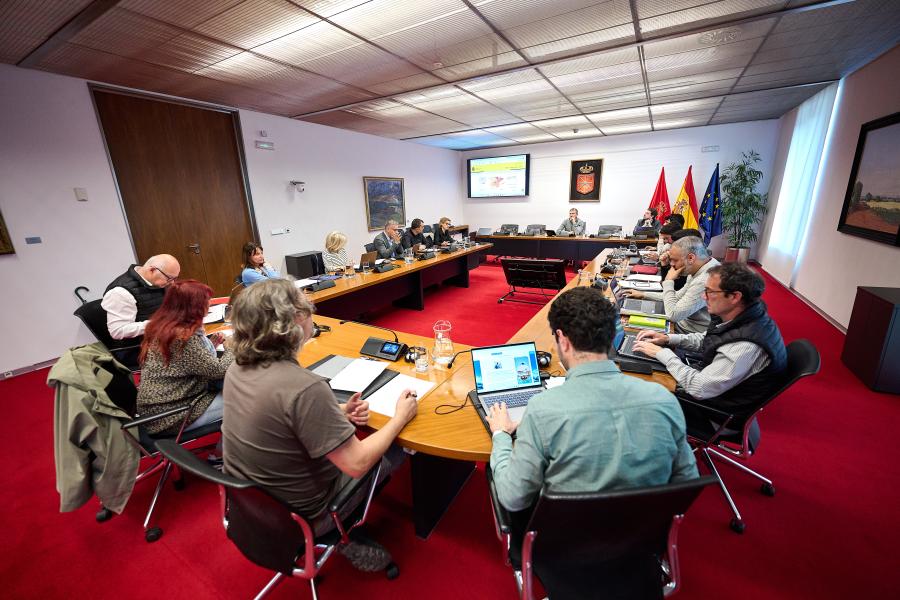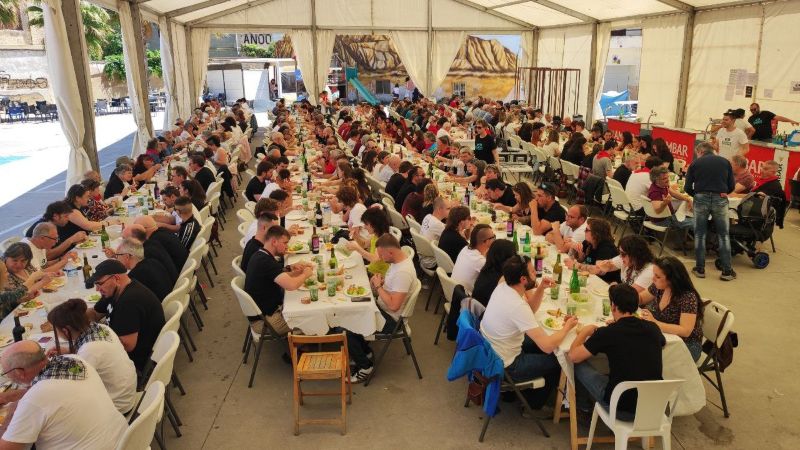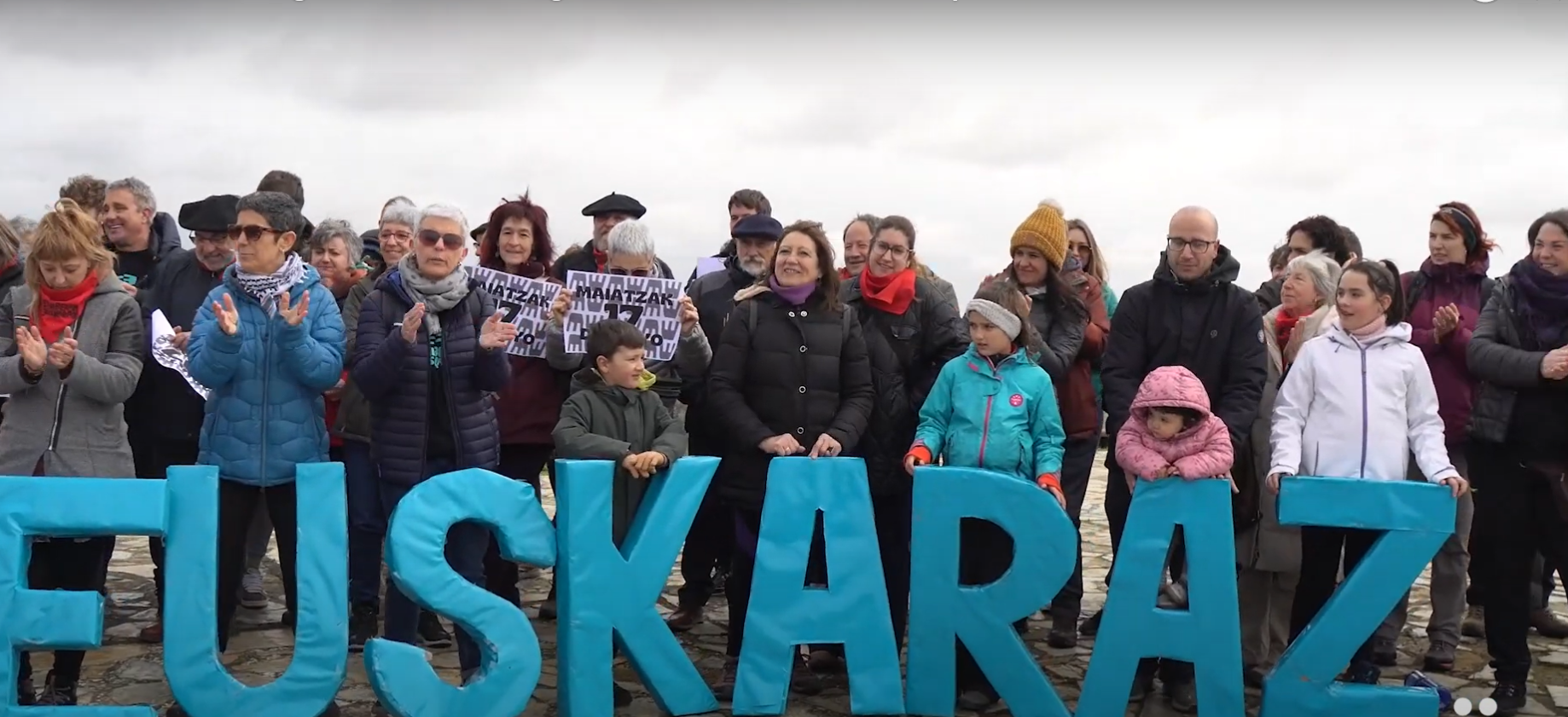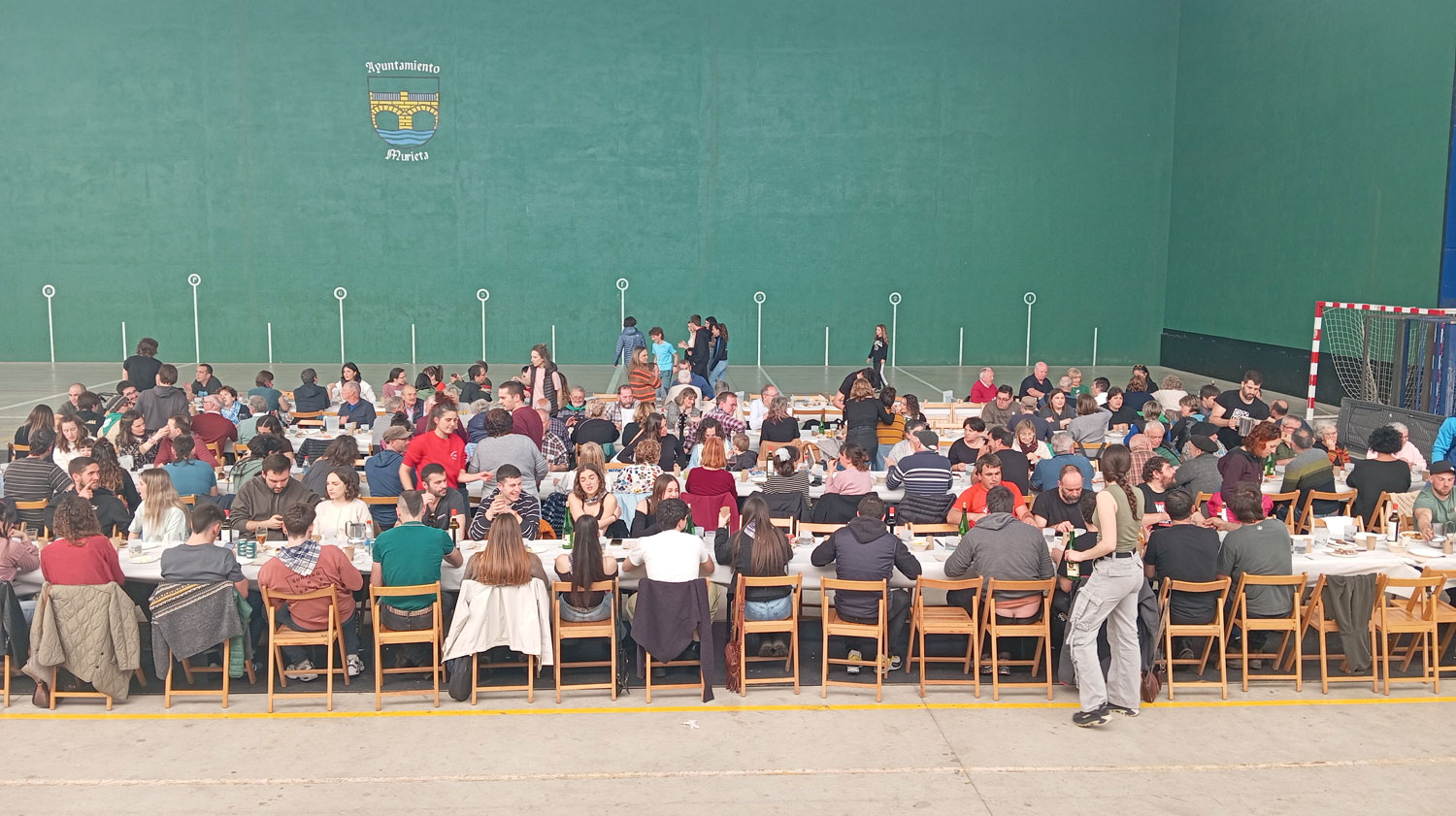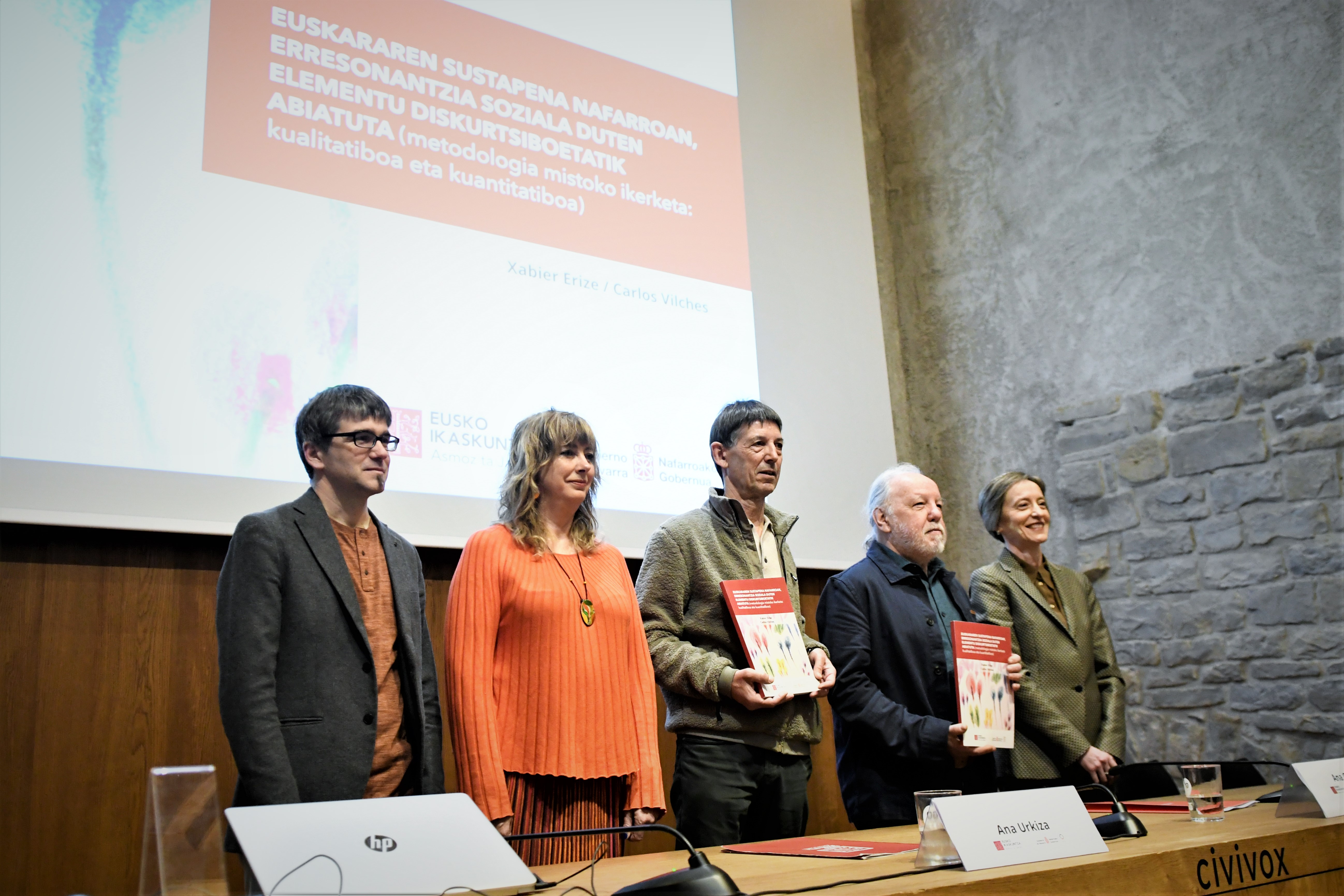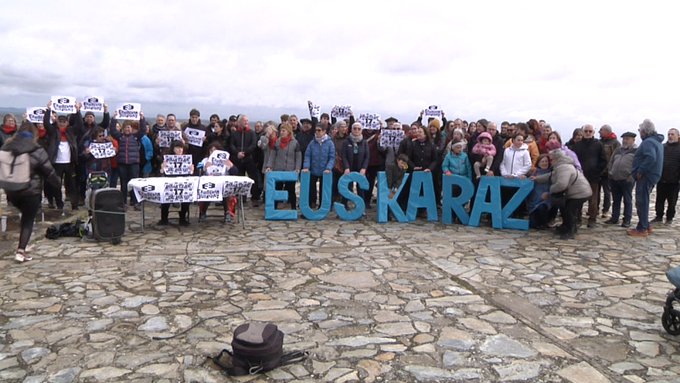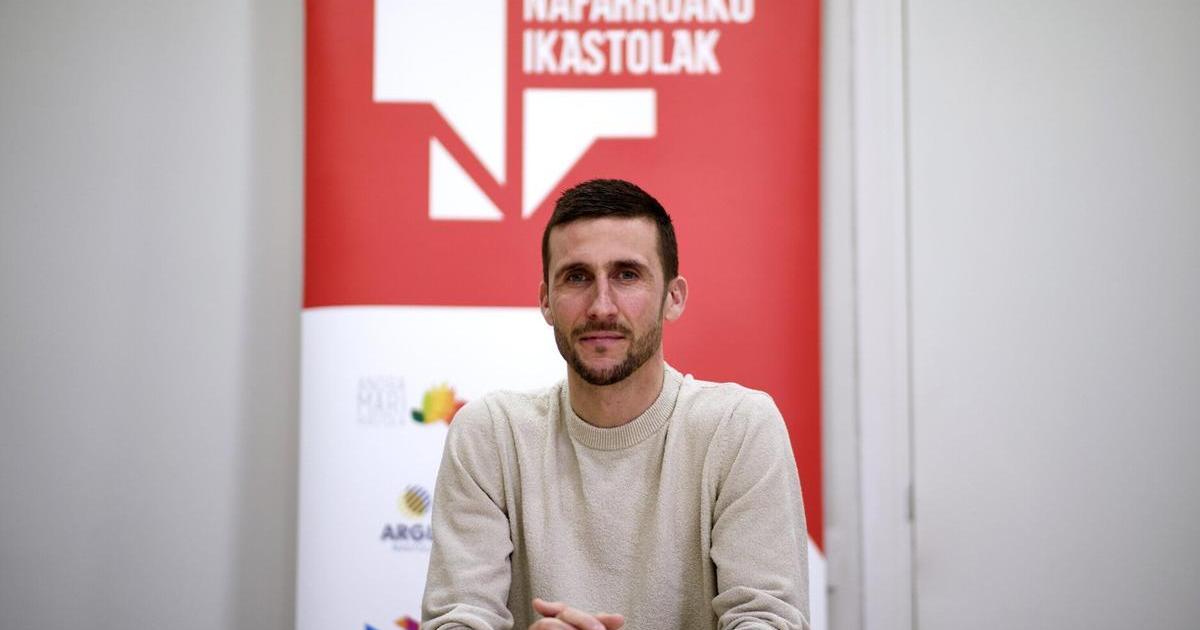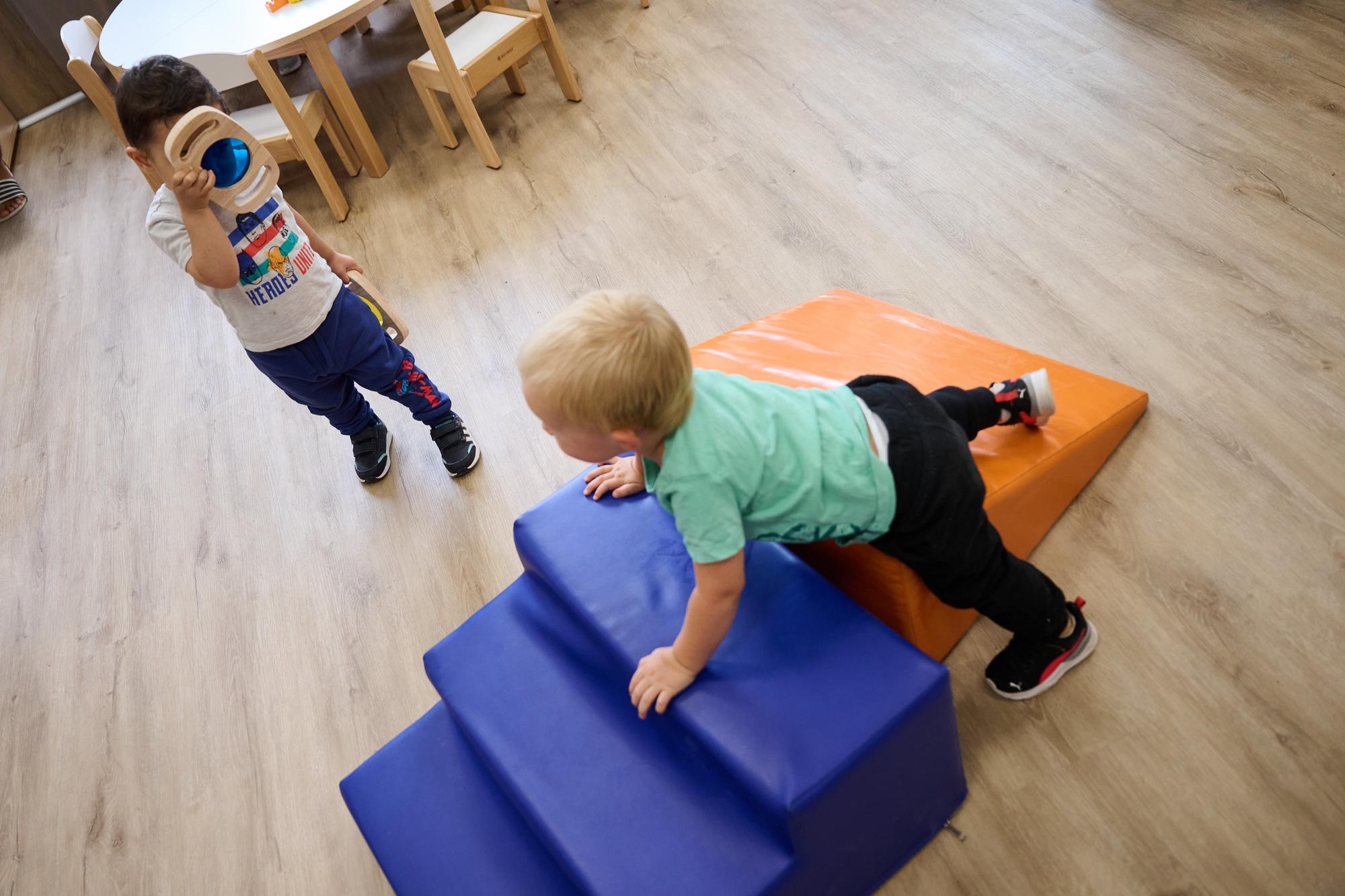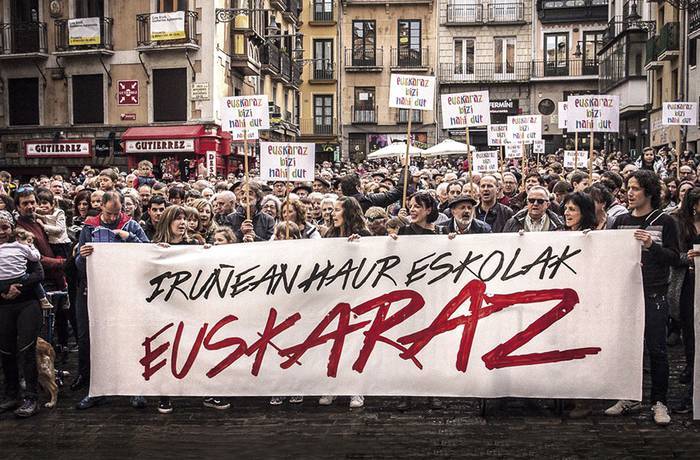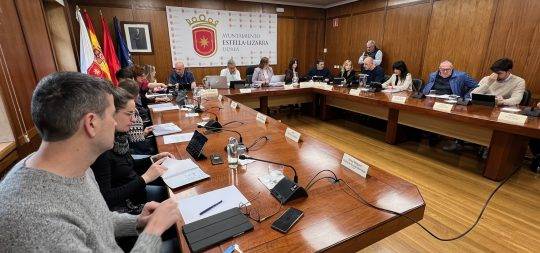How they've recovered what seemed lost in Irurita
- Sociolinguistics Paula Kasares has analyzed the situation of Irurita, the Basque road in the town of Baztan, of going to get lost to revitalize. To do so, it has used a different perspective in our environment, linguistic socialization.
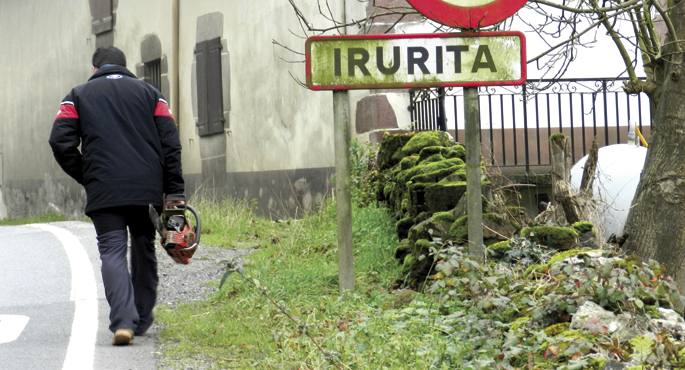
In 2011, researcher Paula Kasares elaborated an article to analyze the case of Irurita (Baztan, Navarra) under the title The monitoring of the knees of the Basque Country from the paradigm of linguistic socialization. The work was awarded the Basque Prize for Sociolinguistics and there have been several themes that Kasares gave in that work.
The process of replacing the language seemed not to have a return in Irurita, but in the last 40 years the boys and girls there have grown up in Basque. The researcher, therefore, has analyzed the change that has occurred for these boys and girls to grow up in Euskera, from an unusual theoretical perspective in our environment, that is, to overcome the socialization of language, the family transmission model that has existed so far. According to Kasares, “the socialization of language is a holistic process that is not limited to the family, dynamic and linked to socio-historical, non-mechanical; interactive, non-unidirectional; flexible and changing over time, non-monolithic”.
As we know, today, many speaking communities have a serious problem in ensuring linguistic continuity from generation to generation, and in any case, the Basque country also has that challenge. And so what has happened in Irurita, 40 years ago, so that what another researcher, Sánchez Carrión Txepetxe, foresees does not materialize? And Txepetxe said: “People over the age of 30 still know Basque, but they use Spanish more.
In younger people, someone will understand it, but they don't speak Basque. At home, they don't teach kids. There are people who are Euskaldun, very old…”. And it was said that the delay between the neighboring irurites would not be reversed. Kasares' study shows a different reality: “In 40 years, however, the evolution of the Basque Country has not gone down the path of perdition that Txepetxe announced... Txepetxe saw that the families of Irurita were not addressing the children in Euskera and announced the disappearance of the Basque. Its linguistic situation allowed us to think that language was happening: that in the social use Castilian had occupied the place that until then occupied the Basque – not only in the street, but also in the homes – that among the young people the Basque language was not used, that Castilian assumed communication functions in formal and prestigious situations, and that the speakers who spoke in the Basque language were habitual… “And, above all, it is not that the bilingual parents would speak. That made Txepetxi tell that Irurita's Basque was in the last steps of the substitution process. However, and here is the reality, when four decades have passed, the Basque Country is still alive in Irurita, as Kasares has shown: “In Euskera we hear, more or less, in the village, the parents speak in Euskera to the children and the children play among them”. Despite recognizing that in the last 40 years there have been great changes that have shaped the situation of the Basque – that is the status of the language, that is the teaching in Basque – but along with them, and what interests Kasares the most, “it has been a generation of irurites that has decided that their sons and daughters grow in Basque, even if that language is not the first language of most of these parents”.
The pursuit of knees as a base
According to the theories and beliefs that have prevailed so far, and changing the idea that has often been manifested in the sociolinguistic history of the Basque Country, because the linguistic community chooses and decides to follow the language from its knees to its knees. It is, therefore, the choice of speakers. Retention or loss of the tongue has been studied, for the most part, from the sociological and anthropological point of view. In general, the informal transmission through the family and formal education has been analyzed. More recently, however, a new paradigm has been developed to analyze the transmission and follow-up of the Basque Country, highlighting the importance of emotions, for example, “language emerged in the field of sweet relations among members of human groups, and to this it clings today, millions of years later”.
Irurita is one of the 15 towns of Baztan, along with Elizondo, which has suffered the greatest social loss of the Basque Country in the twentieth century, according to Kasares. The researcher has taken the family as a unit of study and has followed two criteria. On the one hand, it has taken into account parents with children up to the age of 12 and, on the other, the linguistic competence of family members. It has used a sample of ten families: two Euskaldunes families (in all generations composed of Euskaldunes members) and eight non-Euskaldunes families (in the different generations composed of Euskaldunes and Castilian speaking members).
Irurita, street and borda
Casares' linguistic coexistence in Irurita is very heterogeneous. The full Basque families, on October street, dominate on the edge, without interrupting the follow-up from generation to generation. Non-whole Basque families, mostly on the street, are mothers and fathers who did not learn Basque in their children. Kasares has not known any newly created Basque family in Irurita.
The environment that followed the Spanish Civil War brought with it an important setback of the Basque country. Mocking and mocking were also not few. As in other places, in the town of Irurita the Basque Country joined the dwelling, in the Baztan was spoken in Basque. And, precisely, thanks to those borderers, the Basque resisted in Irurita. “The Irurites of the dwellings, many of them pure Euskaldunes, took the Basque to the streets and thus prevented the absolute transformation of the people, since from time to time they made the people speak in Basque.” However, the Basque Country became a sign of distinction and a path of contempt. “These painful experiences by the Basque Country have had their consequences in the selected languages adjacent to the subjects. Those who suffered contempt for not knowing Castilian well wanted to ensure at all costs that their children learn Castilian and chose a school in Castilian to protect their children from contempt”. The separation between the Irurites and the Bordacos of the people has reached the generation of parents who are today, although the distinction has already been overcome. “Euskera/Castilian for the young Irurites of today is not a dichotomy that distinguishes citizen coexistence.”
Pause
The glottostories composed by Kasares have shown that four out of ten children who grew up in the street by 1945 learned Basque at home. In those created around 1970, only one or two out of ten. “Studying how the grandparents of now behaved with their children (the parents of the children of now), I have seen that those who lived in the center did not usually make their children Basque, although the parents were Basque. In cases where the only parent was Euskaldun, in none of them did the children learn Euskera at home.” That is, what Txepetxe said in the 1970s: “Children are not taught at home.”
Parents of children now grew up on Irurita Street in the 1970s and 1980s, in a totally Castilan-speaking environment. The informants have told the researcher: “There was no talk in Euskera, neither at home, nor outside, nor in schools, nor anywhere.”
Most street children did not receive Euskera at home. Few Basque children learned Spanish at school and in the plaza. The Spanish school had a great influence outside the classroom. “The Basque children got used to speaking in Spanish and, like among their peers, began to speak with their brothers. In the end, the children took the language home and some parents, who until then spoke in Basque, began to speak in Spanish to their children. In some families, the children started in Spanish at school and then the linguistic behaviors with the children were changed, from speaking in Basque to speaking in Spanish. Thus, boys and girls influenced the change of language inside the house.” As usual, parents take different positions. Some were not conducted in Spanish outside of school. “Some of the current fathers and mothers who have retained the Basque childhood recall that they had a familiar environment to maintain language. The parents made their children not change the Basque from home to Castilian, sometimes clearly rejecting the use of Castilian”. One of them would tell the child to pinch, the other would get angry…
According to Kasares, “school language, eccentric (intergenerational) relationships, and family (intergenerational) relationships are not absolutely differentiated linguistic activities. The language of childhood is inserted into a broader process of socialization and interacts. As for the language of the family, the attitude of the parents seems fundamental to keep the Basque in the internal relations”.
The Basque Country to school…
The ikastola Baztan de Elizondo dates back to 1970. In the public school, both in Elizondo and in the other towns, the Basque Country entered later. According to Kasares, “in the mid-1980s, Basque teachers working in public schools were largely the drivers and pioneers of the process of introducing the Basque Country into public education”. They had to deal with the reticence and mistrust of the Basque parents, overcoming the positions opposed to their parents, but, as you can see, the teachers of the schools of the towns of Baztan were convinced that the Spanish school would quickly lose the Basque language. And they were not wrong, because the introduction of Euskera in school has had decisive consequences on the customs of the language, not only in the school, but outside it, both in the family and in the street itself.
Fathers and mothers who are new today did not have the opportunity to study in Basque, even saw the Basque outside the street, and are witnesses of the revolution that has meant the entrance of the Basque Country into the school. Without schooling in Euskera, they do not believe that the Spanish upbringing of children at home will change. “Thus, the school has affected the use of the domestic language and one of the ways of influence has been the children themselves.”
...and from school to the street
Upon entering school, the Basque Country gained social visibility and some young people then, who today are the new parents, chose to learn the language with a warm environment in favor of the language. In the late 1970s, a night school was set up in Irurita. Then AEK in Elizondo. In the late 1980s, young people began to Euskaldunize, undergoing university courses and others. Consciousness, some say. Love, desire, enthusiasm, others. “In their new relationship with the Basque Country, they started working in Euskera and had their brothers, friends, peers, partners as drivers.” And when it comes to getting the ease of speaking in Basque, there are children, nephews and so on. In some cases, the Basque Country entered the house through the use that was made between siblings or between members of different generations. A testimony gathered by Kasares tells us: “As a young man he learned Basque at AEK, and then my father started speaking in Basque with me, and my mom too.”
Family member
A generation from the 70’s and 80’s has become a mother and to speak with her children she has chosen the first language – Spanish – but the second, Basque. “In part or in part, they have chosen Euskera to relate to their sons and daughters. The children have wanted to grow up in Euskera, although they do not usually use it to relate to the elderly. This decision cannot be explained from a mechanical idea of transmission, as they choose the language in which they will work with their children. Today, the explanation given by [Xabier] Erice, linked to the sociological concept of habitus, neither the dichotomous and sexoglosic model proposed by Sánchez Carrión, is useful. In my opinion, in this decision play the relationships that the subjects have established with language and acquired identity. The creation of the first child places the parents before the linguistic socialization of their sons and daughters, which leads them to choose and make decisions. In this sense, the constitution of the family (being children) is presented as a kind of catalyst of the socio-historical conditions that affect the follow-up of the generations of the language”.
Today, new generations of irurites learn Basque in a familiar and domestic environment, and when they start working in school they are able to speak in our language. “Moreover, the choice of parents has had consequences for the rest of the family. If the child has been educated in Euskera, the Basque parents also speak in Euskera, although three decades ago they have not done so to their sons and daughters”.
The linguistic environment, the work of the school and the decisions of the new parents have influenced, according to Kasares, the new linguistic behavior of parents. “In fact, in the event that their children do not speak in Basque with their children, the Basque grandparents have not changed the linguistic behavior with their grandchildren,” and just as their children were educated in Spanish, they also speak in Spanish with their grandchildren. “In my opinion, this change in the behaviour of parents with regard to the linguistic socialization of children is a result, above all, of the interaction between children and adults. And that is that not only adults, but also children play actively in their linguistic interactions. Thus, to somehow express the direction of intergenerational linguistic influence, we must not only look down, but also up. Subjects from several generations influence each other, children are not merely passive recipients of the linguistic effects that come to them from adults. The vertical and unidirectional sense that the concepts of transfer and transmission carry with them, from top to bottom, is not appropriate”.
According to the study of Kasares, there is a very clear rule in the social use of the language of Irurita: children are spoken in Basque. It is rare for them to be done in Spanish, and curiously, and although it is not well known Euskera, what the iruritars consider normal is for them to be done in Basque to the children. Moreover, parents often condemn children to start speaking in Spanish at home. “Behind the conditions of intrafamilial linguistic socialization of children are the values of the parents’ language. But the transmission of language is not just the will of parents. Linguistic socialization is guaranteed by social activity, not by the will of the parents. Therefore, this behavior towards children is very significant. Fathers and mothers have turned their desire into activity, the motivation towards language into activity.” And put children into practice. Parents, children, parents.
Txepetx 1970, Kasares 2011
Wish. Social activity. Child behavior. With parents. Or let's say in the last conversations in Casares: “Behind the consolidation of the continuity of the Basque knees in Irurita, I have seen the composition of the people themselves. What I have analyzed is a community that has overcome the social fracture through the Basque Country. In Irurita we have dwellings and urban areas, continuity and pause, but the follow-up of the Basque Country has compensated for these dichotomies. In the last four decades, Irurita has strengthened the continuity of the Basque Country because language has been able to sewing the fractures in space and unite the interruptions in time. On the other hand, as Txepetxe announced in 1970, the children he heard would be the last Basque irurites.”
Maiatzaren 17an Erriberako lehenengo Euskararen Eguna eginen da Arguedasen, sortu berri den eta eskualdeko hamaika elkarte eta eragile biltzen dituen Erriberan Euskaraz sareak antolatuta
We have had to endure another attack on our language by the Department of Education of the Government of Navarre; we have been forced to make an anti-Basque change in the PAI program. In recent years, by law, new Model D schools have had to introduce the PAI program and have had... [+]
Prentsaurrekoan, maiatzaren 17an ospatuko duten Erriberako Euskararen Egunaren inguruko argibideak eman dituzte. Ume, gazte zein helduentzat zuzendua izango da. Ekimena, Erriberan egiten diren ekimenetan indarrak biltzeko eta euskararen normalizazioaren alde saretzeko... [+]
Nafarroako Ikastolen Elkarteak lehendakari berria du. Oier Sanjurjok hartu dio lekukoa Elena Zabaleta Andresenari. Beste zazpi kide izanen ditu alboan Sanjurjok.
Ez dira gutxi azken boladan euskara bere onenean ez dagoela eta bere transmisioa bermatuta ez dagoela ohartarazten ari diren ahotsak. Bestetik, inork ez du ukatzen hezkuntzak ezinbesteko betebeharra duenik euskara eta euskal kulturaren biziraupenerako. Erronka estrategikoa... [+]
Iruñeko haur eskoletako zuzendariek, EH Bildu, Geroa Bai, Zurekin Nafarroa eta PSNren arteko akordioa kritikatu dute. “Murgiltze ereduaren alde egin dugu beti, baina inoiz ez da gure iritzia kontutan hartzen” salatu du Euskalerria Irratian, Garikoitz Torregrosa... [+]
Euskarazko eskaintza handitzeko akordioa erdietsi dute EH Bilduk, PSNk, Geroa Baik eta Zurekin Nafarroak
Plazara, AEK, Uda Leku, Dindaia eta Ebete antolakundeak Baionan elkartu dira Famili'on egonaldi ibiltariaren lehen edizioa aurkezteko. Hizkuntza mailaren arabera eskaintza bat edo beste egongo da eta haur zein gurasoentzat izango da udaberrian.
Administrazio Epaitegiak arrazoia eman dio EH Bilduk Lizarrako plantilla organikoaren hizkutnz profilen aurka jarritako helegiteari.











